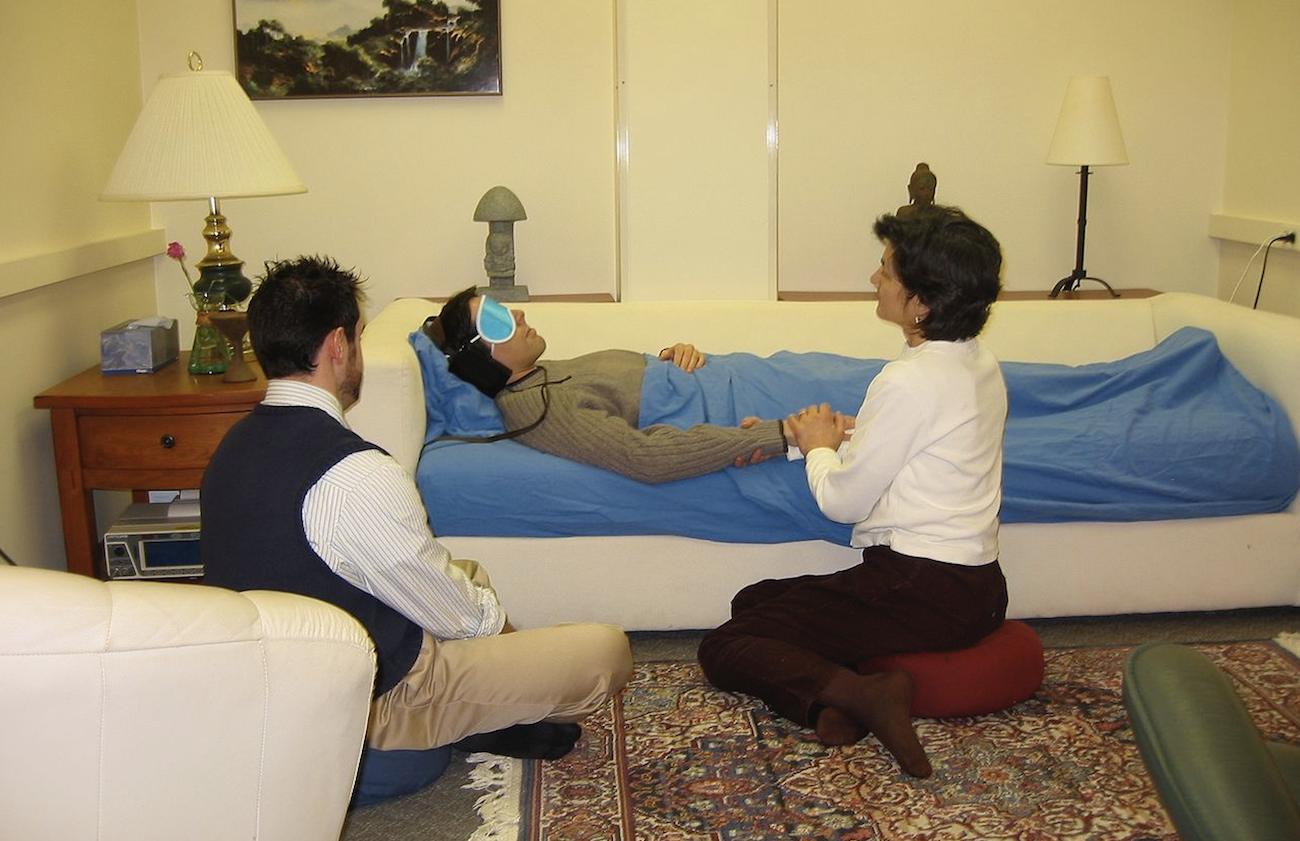“I was involved in oncology when I was a medic,” Dr. Malcolm Barratt-Johnson told Filter, “and in all honesty, the depression that comes with cancer wasn’t really regarded as an important aspect, which is wrong.”
He is now the chief medical officer at Albert Labs, a company that hopes to become the first to offer psilocybin therapy to cancer patients—both via the publicly funded National Health Service (NHS) and privately—in the United Kingdom.
Almost 400,000 people are diagnosed with cancer in the UK each year, so millions are living with its many forms. That depression and anxiety might accompany these diseases is self-evident. “Depression is said to be the least recognized symptom in people with cancer,” states the charity Cancer Research UK, adding that it can be one of the hardest aspects for the patient and their loved ones to cope with.
The pandemic, which brought isolation and increased waiting times for treatment as the NHS struggled under the strain, has only exacerbated the problem, as Barratt-Johnson pointed out.
Albert Labs estimates that 1.5 million cancer patients might benefit from psilocybin therapy in the UK alone, and hopes that what it calls this “unmet need” will help to accelerate the availability of psilocybin for this population. But major legal obstacles remain.
“The psychedelics are the catalysts to meaning-making. And that’s really helpful for people.”
Dr. Lauren Macdonald is a psychiatrist, a psychedelic research fellow at Imperial College London and cofounder of Essence Medicine, a nonprofit focused on psycho-spiritual care for people facing life-threatening illness. She has been involved with clinical trials using psilocybin to treat people with anorexia and OCD. But she’s passionate about what she calls a “spiritual crisis” often found in cancer patients. “The NHS does as well as it can with limited resources, but patients are left to deal with the enormity of the situation on their own,” she told Filter.
Macdonald doesn’t speak only from a clinical perspective. In 2015, she was diagnosed with stage 4 cancer and experienced that spiritual crisis herself. “On an intellectual level, you can try and understand the fact that you’re going to die,” she said. “There’s a lot of fear around what happens when you die: Is it the end? There’s a lot of meaning-making.”
Research has shown psychedelics can help people facing their own death, she said. With psilocybin, she continued, some people have come to see their cancer in a box next to them, allowing them to separate their disease from their identity and to get back their sense of “self.”
Subjects in the trials she’s been involved with have similarly benefited, she said. “The psychedelics are the catalysts to meaning-making. And that’s really helpful for people.”
Scientists around the world have found promise in psilocybin, and policymakers have—to a degree—responded. In 2018, the US Food and Drug Administration gave the drug “breakthrough therapy” status for trials to treat severe depression. Anticipating FDA approval for psilocybin as a legal treatment, Connecticut lawmakers have proposed a bill to create psychedelic medical centers. Oregon is meanwhile already working on the implementation of voter-approved legal psilocybin therapy—patients will require no specific medical diagnosis.
Perhaps most relevant to the Albert Labs effort, Canada is allowing a very limited number of patients to receive psilocybin therapy for end-of-life care and mental health conditions. In 2020, Thomas Hartle, a patient with stage 4 cancer, became the first Canadian to legally receive psilocybin-assisted therapy. A federal exemption allowed him to receive the treatment in order to help him face his own death.
Albert Labs could win approval in 18-24 months, compared to the standard time of up to five years.
So how to move forward in the UK? Psilocybin is deemed a Schedule 1 substance under national regulations, which means it’s thought to have no medical value. It’s notoriously difficult to conduct clinical trials. The usual route to get a medicinal product authorized is through a Marketing Authorisation Application (MAA), which requires compiling a dossier of evidence, broken down to efficacy, safety and quality.
“What is different in the approach Albert Labs is taking is the regulatory pathway we are seeking to obtain the Marketing Authorisation through,” Dr. Barratt-Johnson explained. Since Brexit, he said, the UK’s Medicines and Healthcare products Regulatory Agency (MHRA), has sought to reduce the time it takes to market innovative medicines.
Last year, the MHRA introduced a new pathway to review, approve and license products for NHS use. This Innovative Licensing and Access Pathway (ILAP), as it’s called, “brings together a number of bodies to accelerate the review and assessment process,” in situations where “an unmet medical need exists,” Malcolm Barratt-Johnson said. He believes that anxiety and depression in oncology patients is just such a clinical situation, and that through ILAP—which issues “Innovation Passports” if supporting clinical data are supplied—Albert Labs could win approval in 18-24 months, compared to the standard time of up to five years.
“People are having these huge experiences … Health care professionals don’t have the right tools.”
Dr. Macdonald went through several surgeries to remove tumors, but her cancer did not respond to chemotherapy or radiotherapy. What did work for her was immunotherapy with the antibody pembrolizumab. “I was very fortunate immunotherapy become available when it did, otherwise I would not be here today,” she said.
She has been in remission since 2016.
It wasn’t until 2019 that she heard about psilocybin-assisted therapy. When she did, “because I still had fear of recurrence, I went to the Netherlands to take part in a retreat.” After that, she began advocating on the issue and launched Essence Medicine.
Traditional therapy is not enough for cancer patients, she said. “People are having these huge experiences … Health care professionals are not trained to deal with spiritual crises—existential crisis is really what it is. They don’t have the right tools to help people.”
Photograph of a psilocybin therapy trial at Johns Hopkins University by Matthew W. Johnson via WikiMedia Commons/Creative Commons 3.0




